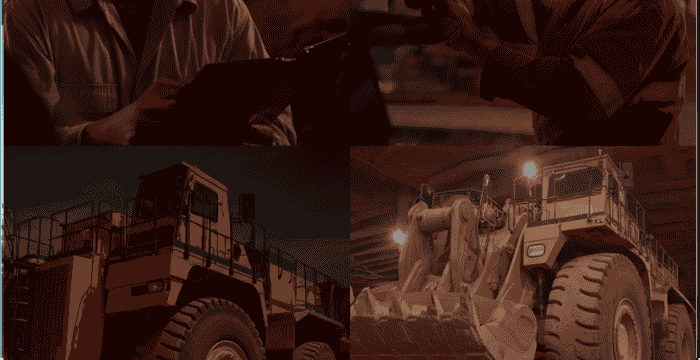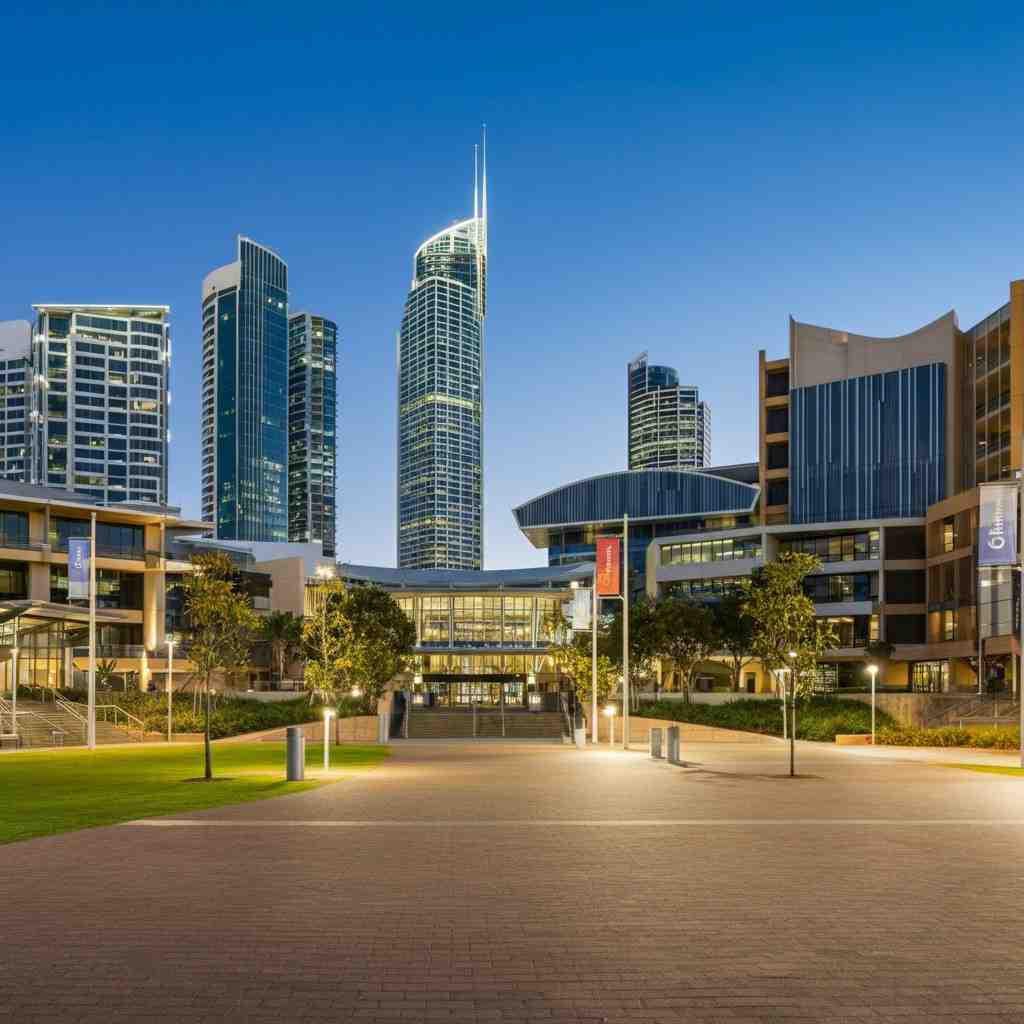Mining jobs in Australia represent some of the most lucrative and dynamic career opportunities available in the country today. Due to Australia’s success in mining and resource development, the industry still boosts the economy and provides many diversified careers for people at any skill level.
Mining in Australia directly hires over 324,800 people as of 2025, and the number is set to grow throughout the rest of the year and into the future. Thanks to the sector’s success, there are many good mining careers available in Australia, along with attractive pay, helpful benefits and plenty of ways to develop professionally. Whether someone is just starting out or is a specialist, there are career opportunities in one of the world’s most advanced mining industries.
Thanks to improvements in technology and sustainable mining, the resources sector now needs workers for new positions as well as for jobs that have always been required. BHP, Rio Tinto and Glencore are hiring people for more than 100 different types of jobs, showing the mining industry’s determination to keep hiring and remain diverse.
What Are Mining Jobs in Australia in 2025?
- Vast areas are covered by mining jobs in Australia, with major mining areas in the Pilbara of Western Australia, Queensland’s Bowen Basin, the Hunter Valley in New South Wales and South Australia’s mines. They together mine iron ore, coal, gold, copper, lithium and rare earth minerals, which are exported to markets and power supply chains around the world.
- The industry’s economic impact extends far beyond direct employment, with mining jobs australia supporting thousands of indirect positions across transportation, manufacturing, and professional services sectors. There are more than 16,367 mining positions available in Australia at present, and every day, new jobs appear as companies grow and fill the gaps left by retiring workers.
- These agencies bring skilled people and suitable jobs together with help from specialised services that match the needs of mining activities. These agencies provide support for jobs of all kinds, including the well-regarded FIFO arrangements that help workers maintain balance in their lives while working on remote mining projects.
Emerging Trends and Opportunities in the Global Mining Industry
Mining Industry Overview Table 2025
| Aspect | Details |
| Global Demand | Strong demand for critical minerals (lithium, cobalt, rare earths) driven by EVs and tech |
| Top Mining Countries | Australia, China, Canada, Chile, India |
| Key Commodities | Iron ore, coal, gold, copper, lithium, bauxite |
| Technology Trends | Automation, AI in exploration, drone surveying, green mining tech |
| Workforce Trends | High demand for skilled labour; focus on safety and sustainability training |
| Challenges | Environmental regulations, high energy costs, and ESG compliance |
| Investment Outlook | Positive, especially in battery minerals and sustainable mining projects |
| India’s Role | Increasing focus on domestic mineral production and export of strategic resources |
- Since switching to renewable energy, there is now a large demand for lithium, copper and rare earth mining professionals, making Australia the main global source of clean energy. The new focus has led to new courses in mining for those who want to learn about sustainable extraction and caring for the environment.
- Iron ore in Western Australia’s Pilbara region is central to the industry, and Queensland leads the way in coal and new mineral discoveries. There are strong mining operations for coal in New South Wales, and copper, gold, and uranium are extracted mainly in South Australia. Each region offers distinct advantages regarding lifestyle, career opportunities, and specialisation areas for mining jobs in australia.
- With the growth of technology, the industry has overhauled classic mining by using automation, AI and digital tools to produce fresh career options, improve safety and boost productivity. Because of these new trends, mining workers are learning new technologies to go with their traditional mining skills, which opens doors for continuous progress and promotions in the industry.
Mining Industry Australia: High Salaries, Job Growth, and Rising Diversity in 2025
- Exceptional Salary Premium: Current employment data shows that mining workers enjoy a much higher median weekly pay of $2,649, compared to the national median of $1,700 in all sectors2. This extra amount shows how much mining professionals are valued for their skills, tough job settings and the critical role they play in the industry.
- Massive Job Growth Pipeline: Mining jobs in australia are projected to grow significantly over the next three years, with employment projections for mining engineers alone expected to reach 18,800 by 2026. According to the Australian Resources & Energy Employer Association, 107 advanced resources and energy projects will start production between 2024 and 2029, adding 27,000 jobs and $131 billion in total investment to the economy.
- Accelerating Gender Diversity: More and more women are involved in mining, as their participation rose from 19% last November to 21% this February, pointing to the industry’s focus on diversity and inclusion. It’s part of a broader strategy to promote equal opportunities, drawing talent from different groups and dealing with past gender imbalances in the mining industry.
In the mining sector, most workers remain employed for long periods, and most full-time employees work full-time jobs. For a decade, casual workers in the mining sector have been only 13%, which is less than 24% for all other industries.
Different Jobs in Mining Available in Australia in 2025
Mining in Australia includes positions for people who have finished high school as well as those with more advanced education. Beginning your career with an entry-level job is useful, while jobs requiring advanced expertise allow more experienced individuals to show their skills in tough situations.
| Job Category | Salary Range (AUD) | Experience Required | Key Skills |
| Entry-Level Operators | $60,000 – $90,000 | 0-2 years | Safety awareness, physical fitness |
| Skilled Trades | $80,000 – $140,000 | 2-5 years | Trade qualifications, technical expertise |
| Engineering Roles | $100,000 – $180,000 | 3-8 years | Degree qualification, problem-solving |
| Management Positions | $120,000 – $250,000 | 5+ years | Leadership, strategic planning |
Latest Career Opportunities in the Australian Mining Industry 2025
- Driller’s Offsider Positions: Jobs in underground and open-cut mining are open to those with little or no experience, and the work comes with thorough on-site training. Driller’s Offsider positions typically offer salaries ranging from $70,000 to $90,000 annually, with responsibilities including assisting drilling operations, equipment maintenance, and safety compliance for mining jobs in australia.
- Trade Assistant Careers: Careers as Trade Assistants give access to trade jobs, and officials start at yearly earnings of $60,000 to $80,000. They help support electricians, mechanics and fitters and also provide opportunities for structured learning that might result in becoming a formally qualified tradesperson in mining companies in Australia.
- Site Support Roles: Among their responsibilities, Site Support Roles include looking after camp facilities, offering catering services and caring for the site, for which they make between $55,000 and $75,000 each year. Anyone hoping to get mining expertise and skills transferable elsewhere will find these roles suitable.
- Equipment Operator Positions: A basic Equipment Operator salary, operating haul trucks, excavators and other machines in mining, is often between $75,000 and $95,000 per year. Usually, people in these roles take part in thorough training and have defined ways to advance to senior posts in mining.
Latest Trades and Technical Areas
- Heavy Diesel Mechanics: These are considered one of the most popular skilled trades in mining, and they often make between $100,000 and $140,000 each year. Mining operations depend on the experts who maintain and repair big machinery, which requires them to know about hydraulic systems, engines and electronic parts.
- Electricians and Auto Electricians: They are paid well in mining areas for operating sophisticated electrical systems used on equipment and structures. The complexity of modern mining operations requires electricians with advanced skills in programmable logic controllers, motor controls, and high-voltage systems for mining jobs in australia.
- Skilled Welders and Fabricators: They take care of important routine maintenance and create vital parts which are essential for the safety of mining equipment. Skilled tradespeople often handle detailed projects in mining that require them to use certain welding and metal fabrication skills.
- Mining Engineers: While training in both technology and practical solutions, Mining Engineers usually earn between $120,000 and $150,000 a year. They plan the way to remove resources, perfect production methods, and maintain safety and environmental compliance throughout Australian mining.
Jobs in Professional and Management
- Project Managers: In mining, Project Managers are responsible for projects that involve many people, significant budgets and firm deadlines. Managers in the mining industry are expected to show effective leadership, have the right technical skills and coordinate people from various groups in difficult environments.
- Geologists and Hydrogeologists:By using innovative scientific approaches, both Geologists and Hydrogeologists look for resources and assess how various environmental activities might affect the environment. Such positions involve doing fieldwork, as well as working with laboratory tools and computer models.
- Environmental Officers: Environmental Officers help mining companies fulfil environmental rules and find eco-friendly ways to reduce their ecological impact. Because the industry is working towards responsible resource extraction and rehabilitation, these roles have gained greater importance.
- Safety Specialists: Safety Specialists work to organise and carry out safety programs that keep workers safe and satisfy government safety standards. Given the inherent risks in mining operations, these professionals play critical roles in maintaining industry safety standards and preventing workplace incidents in mining jobs in australia.
FIFO Mining Jobs Australia (2025): Work-Life Balance Solutions
FIFO Mining Jobs: Revolutionising Australian Mining Careers
FIFO mining jobs in australia have revolutionised how professionals approach mining careers, offering high-paying opportunities without requiring permanent relocation to remote mining sites. Employees working in mining in remote areas using the Fly-In Fly-Out model can live at home with their families and enjoy city life.
Flexible Roster Arrangements for Work-Life Balance
Common FIFO rosters are organised as 8:6, 14:7 and 21:7 schedules, in which the first number means days at work and the second represents days off at home. These arrangements provide predictable schedules that allow workers to plan personal activities and maintain work-life balance despite the demanding nature of mining jobs in australia.
Well-Known FIFO Roster Programs
It takes eight work days in a row and then gives employees six days off to rest, helping the company function without interruptions. This arrangement appeals to workers with young families or those preferring shorter work rotations in FIFO mining jobs in australia.
Because of the 14:7 roster, employees get two weeks of work and one week off, which gives them enough time for both work projects and personal activities. It works well for professionals who need more time during their breaks for travel, learning or their own projects.
This setup means three weeks of work, then one week off, so there is plenty of time to earn and relax. Such an employment roster interests workers who are focused on their finances or do not mind being away from home for long periods in mining jobs.
FIFO, DIDO & BIBO Work Options Explained
The available options under FIFO, DIDO, and BIBO are below:
| Type | Full Form | Description | Common Locations |
|---|---|---|---|
| FIFO | Fly-In Fly-Out | Workers fly from their homes to remote worksites, usually for 1–3 week rosters. | WA, QLD, NT mining and oil fields |
| DIDO | Drive-In Drive-Out | Workers drive to the site from nearby towns or cities. Suitable for semi-remote areas. | NSW, QLD, SA mines |
| BIBO | Bus-In Bus-Out | Workers are transported by company-provided buses to the worksite. | Common in QLD, WA, SA |
- Drive-In Drive-Out (DIDO) plans are meant for workers who live a distance of 200 to 300 kilometres from a mining site and can drive in each day. These positions eliminate flight costs and travel time while providing similar roster flexibility to FIFO mining jobs arrangements.
- Where buses are a better way to travel than driving or flying, workers rely on Bus-In Bus-Out (BIBO) options. They usually have coach seats that include the needed facilities for longer trips.
- Remote mining work opportunities extend beyond traditional arrangements to include hybrid models combining different transportation methods based on operational requirements and worker preferences for mining jobs in australia.
Life and Benefits of FIFO Mining Jobs in Australia 2025
Usually, FIFO workers are given full accommodation in camps designed for mining, complete with individual rooms, leisure areas and a cafeteria. Gymnasiums, libraries, internet connection and fun activities are provided for workers in modern fly-in/fly-out camps.
Different from usual jobs, transportation between my house and the workplace is arranged and paid for by the employer. Charter flights operate on regular schedules, ensuring reliable travel arrangements that support roster compliance for FIFO mining jobs in australia.
Many professionals drawn to the FIFO lifestyle are looking for excitement, great pay and different job experiences, along with staying connected to their families and communities. Because FIFO involves travelling, many workers use their scheduled breaks to learn new skills, travel or focus on personal projects.
Top Employers Offering Mining Jobs in Australia 2025
There are Australian mining companies that are multinational, and there are also regional operators, providing a range of occupations and workplace philosophies. Large companies such as BHP Group, Rio Tinto and Glencore Australia give their employees extensive career training, good benefits and chances for assignments around the world.
Top Mining Companies in Australia Offering Exciting Career Opportunities in 2025
- BHP Group: BHP Group oversees several sites in Australia, giving employees opportunities in iron ore, copper, coal and petroleum work. The company’s commitment to technology and innovation creates opportunities for professionals interested in automated mining systems and digital transformation initiatives within jobs in mining companies in australia.
- Rio Tinto: The company’s Australian activities cover iron ore in the Pilbara, refining aluminium and mining mineral sands. Because the company supports sustainable mining and involves communities, it gives dedicated people many meaningful job opportunities.
- Glencore Australia: Glencore Australia runs coal businesses, copper operations and zinc refineries, creating career chances in multiple industries and places. The company’s integrated business model creates unique opportunities for professionals interested in the complete mining value chain in mining jobs australia.
- South32: South32 carries out work on base metals, metallurgical coal and aluminium in a range of Australian locations. By emphasising operational and safety leadership, the company helps professionals dedicated to the industry grow in their careers.
- Newmont Australia: Newmont Australia concentrates on sustainable gold mining and forms partnerships with the communities around its sites. With the company having offices worldwide, there are chances for advancement and experience with cultures from around the globe in mining roles here in Australia.
Mining companies operating mainly in the mid and regional sectors
- Whitehaven Coal: Whitehaven Coal concentrates on coal mining in New South Wales and Queensland, and its workforce can participate in underground or open-cut mining. Because the company pursues operational efficiency, it creates openings for those hoping to optimise production.
- Yancoal Australia: Yancoal’s Australian sites focus on safety, looking after the environment and collaborating with the communities nearby. The company’s growth strategy provides career advancement opportunities across technical and management roles in jobs in mining companies in australia.
- New Hope Group: At New Hope Group, professionals can choose from coal mining, generating energy and working on farms, as all areas are combined. Because the company concentrates on innovation, it can pursue new technologies and be more sustainable.
Recent Developments in Mining
- Many young mining firms and startups are working on groundbreaking extraction techniques, environmentally friendly actions and discovering new market opportunities. People interested in top-end technology and running a business in mining will find these organisations helpful.
- Because of the increasing demand for renewable energy, lithium and rare earth mining companies are growing quickly, which creates specialised work opportunities for professionals with the right technical qualifications. Often, these companies give their top employees the chance to own a stake in the business and rise quickly in their professions.
- Technology-focused mining companies developing autonomous systems, artificial intelligence applications, and digital monitoring solutions provide career opportunities for professionals with technology backgrounds interested in mining jobs in australia.
Plumbing Careers in Australia’s Mining Industry: High-Paying Opportunities for 2025
Plumbing mining jobs australia represent a specialised niche within the broader mining employment landscape, focusing on mechanical piping systems essential to mining infrastructure. They depend on understanding traditional plumbing work and also knowing about industrial systems, high-pressure uses and mining tools.
Plumbing Jobs in the Mining Industry – Australia 2025
| Job Title | Key Responsibilities | Typical Salary (AUD/year) | Work Type |
| Maintenance Plumber | Maintain water systems, drainage, and piping in mining camps | $90,000 – $110,000 | FIFO/DIDO/BIBO |
| Hydraulic Systems Technician | Install/repair hydraulic and water systems in processing facilities | $100,000 – $120,000 | FIFO/DIDO |
| Camp Services Plumber | Oversee plumbing for accommodation, kitchens, and bathrooms at site camps | $85,000 – $105,000 | FIFO |
| Water Treatment Plumber | Handle waste and potable water systems, filtration units | $95,000 – $115,000 | FIFO |
| Fire System Installer | Install & maintain fire suppression and sprinkler systems | $90,000 – $110,000 | FIFO/DIDO |
Mining Depends on Mechanical Piping for Smooth Operations
- In mining, mechanical piping takes care of water supply, waste handling, chemical reactions and powering major machinery with hydraulics. Plumbers in mining environments work with materials and pressures far exceeding residential applications, requiring specialised training and certifications for plumbing mining jobs in australia.
- Working in process plant plumbing, team members install and take care of the complex piping needed to move slurries, chemicals and processed materials through mining facilities. Experts in corrosion-resistant materials, operating at high pressure and unique joining methods are required for these systems.
- Water management in mining relies on efficient dewatering systems, which means having plumbers who understand pumps, pipelines and water control. The job usually includes handling tough tasks underground, where specific safety guidelines are required.
Infrastructure Project Plumbing
- Infrastructure project plumbing refers to putting in and maintaining major water management systems, tackling dewatering, processing of tailings and related utility work for plants. These projects often require coordination with engineering teams and compliance with strict environmental regulations for plumbing, mining jobs in australia.
- This type of plumbing at a mining camp covers shelters, entertainment areas and necessary offices for running the business. You have to be flexible in handling both industrial and commercial plumbing tasks in mining industry workplaces.
- When there is an emergency, emergency response plumbing deals with fixing and repairing essential systems quickly. Working as a specialist means having technical skills, handling problems and being able to handle stress in tough conditions.
How Much Do Employees Aim for in Salary and Their Career Growth in 2025?
- Salary expectations for plumbing mining jobs in australia typically exceed standard plumbing rates due to the specialised nature of the work, remote locations, and demanding conditions. People in their first positions make around $80,000, but those with expertise can earn between $120,000 and $150,000 each year.
- Staff members may move up by becoming team leaders, managing projects or working as expert consultants. Senior roles in mining may require building and specifying detailed piping systems, so workers are required to study and earn additional engineering certificates in Australia.
Because attention to water use and environmental compliance has increased in the mining sector, plumbers with skills in sustainable water systems and the latest treatment methods are becoming more in demand.
Mining Jobs in Australia for Foreigners (2025): Immigration and Visa Requirements
Mining jobs in australia for foreigners provide pathways for international professionals to access Australia’s lucrative mining sector while potentially securing permanent residency. As the industry faces a lack of skills, employers are hiring from abroad anyone with the right expertise and certifications.
| Requirement | Details |
| Eligible Visas | Subclass 482 (TSS), Subclass 186 (Employer Nomination), Subclass 494 (Regional) |
| In-Demand Roles | Mining Engineer, Electrician, Heavy Diesel Mechanic, Geologist, Plumber |
| Skills Assessment | Required through Trades Recognition Australia (TRA) or Engineers Australia |
| English Proficiency | IELTS 6.0+ (or equivalent in PTE/TOEFL) |
| Work Experience | Minimum 2–5 years relevant experience (varies by occupation) |
| Job Sponsorship | Must have a job offer from an approved Australian employer |
| Health & Character Checks | Medical exam + Police clearance from home country |
| Regional Priority | High demand in WA, QLD, SA for remote mining areas |
| PR Pathway | Subclass 186 and 494 visas can lead to permanent residency |
What are the VISA Options for Mining Workers in 2025?
The Temporary Skill Shortage (TSS) visa makes it possible for mining companies to support the visas of overseas workers when local staff are not available. This visa category requires employer sponsorship, skills assessment, and English language proficiency demonstration for mining jobs in australia for foreigners.
- The ENS plan allows skilled mining workers sponsored by Australian mining companies to gain permanent residency in Australia. Candidates in this visa category are expected to know reasonable English and be tested for a range of skills.
- The Regional Sponsored Migration Scheme (RSMS) provides a path to permanent residency for people who agree to work in regional mining areas. The usual benefit of this pathway is quicker processing and less need for skilled workers compared to visa types for urban centres.
- Working Holiday Maker visas allow selected people from other countries to experience Australia’s mining industry while sightseeing. These visas provide entry-level opportunities that can lead to employer sponsorship for longer-term arrangements in mining jobs in australia.
Australian Skill Assessment and Recognition Process
- Skills assessment requires Australian authorities to examine a person’s certificates and experience, so that foreign qualifications are equivalent to local standards. This process varies by occupation but typically requires documentation of education, work experience, and professional certifications for mining jobs in australia for foreigners.
- Engineers Australia determines the qualifications for engineers, and TRA (Trades Recognition Australia) certifies those for skilled trade positions. Users of ePGA are usually assessed over a 3 to 6-month period using detailed records of their education and job experience.
- Depending on the visa you apply for, English language proficiency is required, and most people use IELTS, PTE or TOEFL scores for that. Often, agencies that help with mining recruitment offer extra English language help to their sponsored workers.
- Professional registration is required for some workers, particularly engineering and technical staff, who join official mining industry groups or get licensed.
Australian Visa Programs That are Sponsored by Employers in 2025
- Many Australian mining firms assist international workers by arranging their visas, offering temporary housing and organising orientations for them. Certain companies provide a way for their valuable employees to become permanent residents.
- In most cases, sponsorship means the company helps with visa payments, relocation costs and the first place to live. Companies may also provide cultural orientation and mentorship programs to support successful integration for mining jobs in australia for foreigners.
- Miners can expect to earn $147,850 a year on average in Australia, with first-time workers receiving $116,952 and highly experienced employees receiving $190,000 annually. The good pay and great living conditions found in Australia make mining jobs there highly appealing to experts from overseas.
Latest Regional Jobs in Mining Across Australia in 2025
Jobs in Western Australia Mining
- More than 40% of the world’s iron ore comes from mining in the Pilbara region of Western Australia. The state’s mining sector employs over 150,000 people directly and supports numerous service industries throughout Perth and regional centres for mining jobs in australia.
- In the Pilbara region, there are more mine sites than anywhere else, and big names include Mount Gibson Iron, Fortescue Metals Group and several BHP and Rio Tinto locations. They offer different career paths in both production, maintenance and the support activities of a company.
- Many Goldfields region businesses like Northern Star Resources, Gold Fields and Evolution Mining offer extra work, since they have mines in various places. The nature of these jobs tends to bring team members closer together and gives quick chances to move up in the mining industry.
Opportunities in Mining in Queensland
- Most of Queensland’s mining is done for coal across the Bowen Basin and Galilee Basin, as well as for base metals and critical minerals. The state’s proximity to Asian markets and established infrastructure makes it attractive for both workers and companies seeking mining jobs in australia.
- Glencore’s mines, BHP’s operations and many other medium-sized producers can all be found in the Bowen Basin. They allow individuals to gain stable work and easily move up the career ladder.
- As more copper and gold projects begin in North Queensland, exploration and development experts will find new work opportunities. Many mining careers in Australia give people the chance for quick career growth and a lot of varied experiences.
New South Wales’ Mining Industry
- Coal production in the Hunter Valley and Illawarra areas, plus mining of base metals and gold, are the main activities in the New South Wales mining sector. The state’s established mining heritage and proximity to major population centres provide unique lifestyle advantages for mining jobs australia professionals.
- There are many coal operations in the Hunter Valley that provide reliable jobs, along with good infrastructure and community backing. Such operations usually support workers who want to live at home and earn wages from mining.
- Many technical careers are available in base metals operations statewide. Such projects regularly bring challenging technical issues and new opportunities for innovation in resource employment.
The states of South Australia and the Northern Territory
- Exploration for copper, gold, uranium and emerging battery minerals is possible in South Australia and the Northern Territory. These regions often provide accelerated career advancement opportunities due to smaller operations and diverse project portfolios for mining jobs in australia.
- Being one of the world’s biggest copper-uranium sites, Olympic Dam offers a variety of roles and experience in various commodity and technical fields. Because these plants are complex, they open up interesting opportunities for professionals in integrated mining and processing.
- Base metals, gold and emerging critical minerals are the main targets for Northern Territory mining operations and Newmont, Evolution Mining, and several exploration companies offer employment throughout the mining process.
How to Secure Mining Careers in Australia in 2025?
Requirements for Certification
- Applying for mining jobs in australia requires understanding industry-specific requirements, including mandatory safety certifications, medical clearances, and drug and alcohol testing protocols. It is common for positions to need you to complete safety training before you begin.
- To work on most mining sites, you need the Construction Induction (White Card), which covers simple safety skills and recognising potential hazards. Having this certification means it is usually recognised and accepted for mining jobs in every Australian state for many years.
- For many mining jobs, certification in First Aid is a requirement, and these requirements can differ by both job and location. Getting trained in advanced first aid may help you succeed in certain mining jobs in Australia.
- Having a license is necessary to operate certain kinds of equipment, and each kind of equipment needs its own license. These licenses typically require both theoretical and practical assessment components for mining jobs in australia.
Experts Latest Tips for Creating Your Resume in 2025
- Resume optimisation for mining jobs in australia should emphasise safety awareness, physical fitness, teamwork abilities, and relevant technical skills. Employers in the mining industry are drawn to candidates who show they are dependable, flexible and hardworking for remote positions.
- Showing you have the required certifications, training and background in tough environments proves you are ready for mining. Showing how you solved problems, collaborated with others and followed safety rules demonstrates that you are fit for posts in the mining industry.
- Include information in your cover letter that reflects your understanding of mining needs and your interest in safety, working together and achieving great results. Looking into different Australian mining businesses and activities is a real sign of interest and preparation.
Ready for Your Interview: An Explanation
- Part of interview preparation is to learn about the organisation’s work, safety guidelines and the latest industry changes. Assessment centres may include practical skills testing, psychological evaluations, and group exercises designed to evaluate suitability for mining jobs in australia.
- Before starting mining work, most employers ask for medical exams that include vision, hearing, fitness and drug and alcohol tests. Knowing these needs helps job seekers plan for their mining jobs in Australia.
- Assessments of mental abilities may be necessary for some jobs, especially if they require responsibility in safety or if people work remotely. They explore whether individuals are comfortable in tough mining environments and how well they can interact with others on the job.
What Mining Companies Pay and the Perks in Australia in 2025?
Mining Companies Pay and Perks in Australia (2025):
| Position | Average Annual Salary (AUD) | Common Perks and Benefits |
| Mining Engineer | $110,000 – $160,000 | FIFO rosters, travel allowance, accommodation, and bonuses |
| Heavy Diesel Mechanic | $90,000 – $130,000 | Health insurance, overtime pay, and training programs |
| Electrician | $95,000 – $140,000 | Tool allowance, shift loadings, and camp facilities |
| Geologist | $100,000 – $150,000 | Professional development, relocation assistance |
| Site Supervisor | $120,000 – $180,000 | Leadership bonuses, company vehicle, wellness programs |
| General Laborer | $70,000 – $95,000 | Free meals, travel costs, and safety equipment |
High-Paying Entry-Level Jobs in Australia’s Mining Industry”
- Entry-level mining jobs in australia typically offer starting salaries between $60,000 and $90,000 annually, significantly higher than many other industries. They are often accompanied by good benefits and an opportunity to progress with their earnings.
- An average trade assistant position pays between $60,000 and $70,000, and there are clear paths into mining apprenticeships and qualified trade roles that pay up to $120,000 each year.
- People starting out in equipment operator jobs usually earn $70,000 to $85,000 a year, and experienced operators can make $90,000 to $110,000 based on the machines and demands at different mining sites.
Experienced Professional Pay in Australia 2025
- Experienced mining professionals can expect substantial salary premiums, with skilled trades earning $100,000 to $140,000 annually and engineering professionals earning $120,000 to $180,000 per year in mining jobs australia.
- On average, management jobs offer from $150,000 to $250,000 per year, and senior executive roles can go over $300,000 per year with extra bonuses and equity participation in Australian mining companies.
- Experts in specialist areas and emerging technology can charge high prices in Australia’s mining industry.
Australian Mining Job Advantages And Perks in 2025
- Most mining companies in Australia offer their staff superannuation benefits above the standard level, health coverage and help with skill upgrades.
- FIFO arrangements provide accommodation, meals and transportation, which helps to lower living costs and keep earnings high. These arrangements can result in significant savings compared to traditional employment models for mining jobs in australia.
- Companies in the mining industry help their staff by giving them study support, training events and career progression opportunities.
What the Mining Industry Holds for Workers in Australia in 2025?
The Use Of Technology And Automation Is Changing The Construction Industry
- The future of mining jobs in australia is shaped by technological advancement, sustainability initiatives, and evolving global commodity demands. Because of automation and new digital tools, workers are required to gain technical skills as well as the usual mining expertise.
- Innovations in technology, such as autonomous vehicles and remote-controlled equipment, are provoking new needs in the mining sector and letting those with technology skills grow their careers while existing workers learn new skills.
- Because of data analysis and digital monitoring systems, there are now mining industry jobs centred on making operations more efficient, ensuring ahead-of-time maintenance and analysing performance.
Renewable Energy Mining Brings Many Opportunities.
- Demand for battery minerals, rare earths and other important materials is increasing worldwide, which is fueling the fast expansion of renewable energy mining. This trend creates new career paths focused on sustainable extraction methods and environmental stewardship for mining jobs in australia.
- Because of the rapid growth in lithium mining, there are now many new opportunities for professionals with geological, engineering and processing experience in the resources sector.
- Many Australian mining companies hire experts in advanced processing and environmental management for their critical minerals projects.
Gaining Skills and Keeping Up With Learning
- Those working in the mining sector now need to continue learning and develop new skills to achieve lasting success. Companies increasingly invest in training programs that help workers adapt to technological changes while maintaining safety and productivity standards in mining jobs in australia.
- Everyone in the mining industry, from operators to those at the top, needs to be able to use digital systems and analyse data.
- More and more, professionals with knowledge in the environment and sustainability are recognised as the industry develops responsibly and involves the community.
Conclusion
Mining jobs in australia offer exceptional opportunities for both domestic and international professionals seeking rewarding careers in a dynamic, well-compensated industry. Because of its ongoing development in various sectors and areas, the mining industry keeps drawing people ready to take on rewarding roles in top-quality operations.
The industry aims to constantly change and develop, ensuring that many different professionals can help with mining activities while connecting with local people. There are career advancement opportunities, higher wages and a chance to contribute to global supply chains for people working in Australia’s mining business, regardless of their chosen role.
From FIFO mining jobs australia that offer work-life balance to specialised plumbing mining jobs australia that require technical expertise, the sector accommodates diverse career preferences and skill sets. International professionals seeking mining jobs in australia for foreigners will find comprehensive support systems and clear pathways to permanent residency, while domestic workers can access jobs in mining companies in australia that provide stability, growth, and exceptional compensation packages.
FAQs (Frequently Asked Questions)
Q1. What jobs in the mining industry can Australians look for in 2025?
Ans. There are many types of mining jobs in Australia, starting with equipment operators, trade assistants, heavy diesel mechanics, electricians and going on to mining engineers, geologists, project managers and site supervisors. Because technologies and sustainability are advancing, there is a growing demand for specialised workers in environmental management, safety and plumbing.
Q2. How much can people earn in mining jobs in Australia?
Ans. Australian miners are among the best-paid workers in the country. New workers usually make between $60,000 and $90,000 a year, while skilled tradespeople can earn up to $140,000. Engineering workers are usually paid between $120,000 and $180,000, and managers can make $250,000 or more when bonuses and benefits are taken into account.
Q3. Which qualifications and certificates are needed to be employed in Australian mining?
Ans. Understanding safety is usually required, so most mining jobs need the Construction Induction (White Card). Other certificates that are common include first aid, operating equipment licenses and certain trade or engineering credentials. Most international applicants are expected to take skills tests, demonstrate their English skills (with IELTS, PTE or TOEFL) and often need to be certified or registered for some occupations.
Q4. What is the process for FIFO (Fly-In Fly-Out), DIDO (Drive-In Drive-Out) and BIBO (Bus-In Bus-Out) mining employees?
Ans. In FIFO jobs, staff are flown out to sites in isolated areas for defined periods (e.g., 8 days on, 6 days off) and they receive accommodation, food and all travel costs. For DIDO schedules, employees who live close enough to the site can drive in, but BIBO uses buses for workers living further away. People use these models to create time for other interests, and these types of jobs are liked because there is no need to permanently move away from home.
Q5. Can foreigners be hired for mining jobs in Australia, and what sort of visa do they need?
Ans. Given that there are not enough skilled workers in Australia, foreigners can apply for some mining jobs. Many applicants use the Temporary Skill Shortage (TSS) visa, Employer Nomination Scheme (ENS) and Regional Sponsored Migration Scheme (RSMS). Employers have to sponsor these visas, check an applicant’s skills and ensure they know English. A lot of major mining companies help qualified international employees move to the country and become permanent residents.










